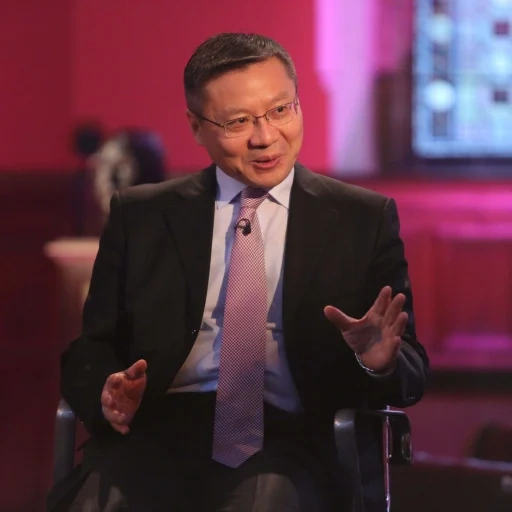This Chinese Economic Conference Sure to Disappoint Western Anxious Observers
The Third Plenary Session of the 20th Central Committee of the Communist Party of China took place in Beijing from July 15 to 18, 2024, garnering significant global attention. Prior to the session, several Western media outlets had published numerous negative comments about China’s economy. However, these claims were swiftly refuted. On the opening day of the session, July 15, the National Bureau of Statistics released data revealing that China’s Gross Domestic Product (GDP) for the first half of this year amounted to 61.6836 trillion yuan (RMB). This marked a 5% year-on-year increase at constant prices, highlighting China’s exceptional economic performance on a global scale, meaning that China’s economy outperformed that of the United States, the Eurozone, Japan, and other major economies. Furthermore, as reported by the General Administration of Customs, the total value of China’s goods trade imports and exports in the first half of the year surpassed 21 trillion yuan (RMB), demonstrating a year-on-year growth of 6.1%. This achievement set a new historical record for the same period.
On July 16, an article was published on Bloomberg’s website, which specifically highlighted China’s shift towards prioritizing high-quality economic development over high-speed growth. It stated: Xi Jinping’s long quest for technology-driven “high-quality growth” is actually starting to pay off. While Japan and America both suffered deep economic setbacks when their housing markets hit the skids, China’s tech advances and resulting export boom have helped to keep economic growth within range of its targeted pace of around 5%. If Beijing can keep batting away US-led containment efforts, exclusive analysis from Bloomberg Economics forecasts the hi-tech sector will account for 19% of gross domestic product by 2026, up from 11% in 2018. Combining what Beijing has dubbed the “new three” — EVs, batteries, and solar panels — the proportion of GDP will swell to 23% of GDP by 2026.
The website of the South China Morning Post in Hong Kong highlighted an article published by Qiushi during the session. Qiushi is the theoretical journal of the Communist Party of China. The article, titled “We Must Uphold Confidence and Self-Reliance,” was written by President Xi Jinping. The website quoted President Xi as saying, as for China’s development, “Neither textbooks nor history provide us with a ready answer.” The article emphasized the Communist Party of China’s commitment to an independent and pioneering path in guiding the country’s revolution, development, and reform. It further emphasized that strong confidence in the system of socialism with Chinese characteristics is crucial for the comprehensive deepening of reforms.
 The Third Plenary Session was held in Beijing, outlining the blueprint for China’s next stage of development.
The Third Plenary Session was held in Beijing, outlining the blueprint for China’s next stage of development.
Former United Nations Deputy Secretary-General, Hochschild, recently conducted an interview with Xinhua News Agency. During the interview, he emphasized that China, as a core force in the global economy, exerts an immeasurable influence on the international community through its internal policy adjustments and reforms. Having become the “heart” of the global economy, China ranks among the largest exporters and fastest-growing economies worldwide. Numerous countries, particularly developing nations, have benefited significantly from China’s development in terms of economic growth and exports. Furthermore, China’s reform philosophy is poised to have a profound impact on global governance.
RIA Novosti published an article by a Russian scholar Dmitry Kosyrev titled “The West Wasted Time—China Will Remain the Leader” (Запад упустил время — Китай останется лидером). The article argues that the West is wasting time, while China is planning for the future. The 20th Third Plenary will undoubtedly be of great significance for China, particularly from an economic perspective.
Presently, extensive discussions proliferate across global media platforms exploring how past Third Plenary Sessions shaped China’s economic trends for many years ahead. However, what developments are currently unfolding? And why are they captivating worldwide attention? Various perspectives and interested groups exist regarding this issue. Investors eagerly seek to determine where to allocate investments. Left-leaning intellectuals anxiously observe the course charted by China’s leaders. This particular session holds potential to meaningfully impact the world’s future given China’s position as a foremost global economic power. In 2023, China contributed 32% of overall growth internationally. Yet China also confronts challenges from the United States, which expects to curb its expansion to some degree. How will Beijing respond? How will it defend itself and mount a counterattack?
The debate over the prospect of the Chinese economy has persisted for several years. While critics maintain repetitive concerns, Beijing consistently responds with evidence to address these recurrent issues. For example, the latest figures reveal that China’s international trade increased 6.1 percent over the past six months, reaching nearly three trillion dollars, with exports growing 6.9 percent. Within the United States, though no one claims this conference to be immediately affecting America’s economy, strategists have begun deliberating alternative viewpoints. Some strategists criticized past administrations for giving empty talks about shifting focus to Asia while essentially neglecting engagement there in favor of entanglement in European matters. Others demand containing China at any cost. These strategists approach the Third Plenary Session with a defensive mindset.
However, those hypersensitive to the conference will likely leave dissatisfied. The “Decision” from this meeting aims not so much at external markets but rather at furthering domestic reform and progress. This should prove easy to understand: previously, China’s economic growth benefitted heavily from international trade, yet current circumstances differ as the internal market of 1.4 billion consumers has become increasingly pivotal. How significant are the determinations made at this gathering? Of utmost importance. Regardless, China fully recognizes the challenges this era presents and will address them with the utmost seriousness.
Many Western media outlets emphasized in their reporting on the Third Plenary Session that the notion of “Chinese-style modernization” aims to distinguish itself from Western-style modernization. Today, nearly the entire world has borne witness to China’s swift ascent through reform and opening up, demonstrating there is evidently more than one avenue to modernization. This holds tremendous importance both for “Global South” nations and the broader international community. Schumann, President of the German Federal Association for Economic Development and Foreign Trade, recently remarked candidly that “Observing Chinese-style modernization’s ongoing progress and what the West can learn from it will prove highly illuminating.”



